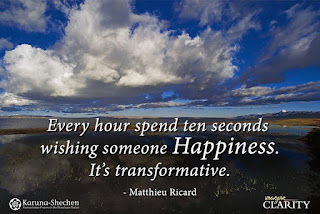Pleasures and suffering
Are our quest for for pleasures i vain?
Is fame in vain?
Is likes and selfies in vain?
Mattieu Ricard, the Buddhist monk born in France, quotes an ancient Tibetan master;
Drinking, dancing, singing, and the pleasures of the flesh never fully satisfy.
First, those pleasures do not satisfy both the body and mind. Second, they depend on external circumstances over which we never have complete control, and as such are not always immediately available whenever and wherever we want them. [...] On reflection, pleasures are the cause of great frustration and repeated suffering. [...] However, the happiness provided by the Dharma is quite different. It permeates the body and mind at all times and in all circumstances. [...] No enemy and no event can take it away from us, and its benefits continue into our future lives. That is why it is an ultimate goal to achieve."
Asanga, extract from gdams ngag rinpoche'i mdzod, compiled and edited by Jamgon Kongtrul Lodro Thaye ('jam mgon kong sprul blo gros mtha' yas, 1813-1899), Shechen Publications, India, 1999, vol. 3, p. 458-9
Is it this kind of satisfaction I feel after the voluntary lessons I have with young refugees?
I don't do much, I teach them some Swedish and try to show that I care for them.
I may be more good for me than for them.
Mattieau Ricard again:
"The American psychologist Tim Kasser, author of a The High Price of Materialism (2003, MIT Press), and his colleagues at the University of Rochester, have highlighted the high cost of materialist values. Thanks to studies spread over twenty years, they have demonstrated that within a representative sample of the population, individuals who concentrated their existence on wealth, image, social status and other materialistic, extrinsic values promoted by consumer society are less satisfied with their existence. Focused on themselves, they prefer competition to cooperation, contribute less to the general interest and are unconcerned with ecological matters. Their social ties are weakened and, if they count many relationships, they have fewer real friends. They show less empathy and compassion for those who suffer and have a tendency to use others for their own ends. They are, paradoxically, in less good health than the rest of the population. Excessive consumerism is closely linked to extreme self-centeredness."
So we don't have to envy rich people. People who focus on themselves are often not happy inside, even if they may look happy on the outside.
Altruism may give a deeper feeling of meaning than fame and big houses.
Though it may be necessary to not go to the extremes - the middle way is probably the best here too, even if it may be narrow.


Comments
Post a Comment